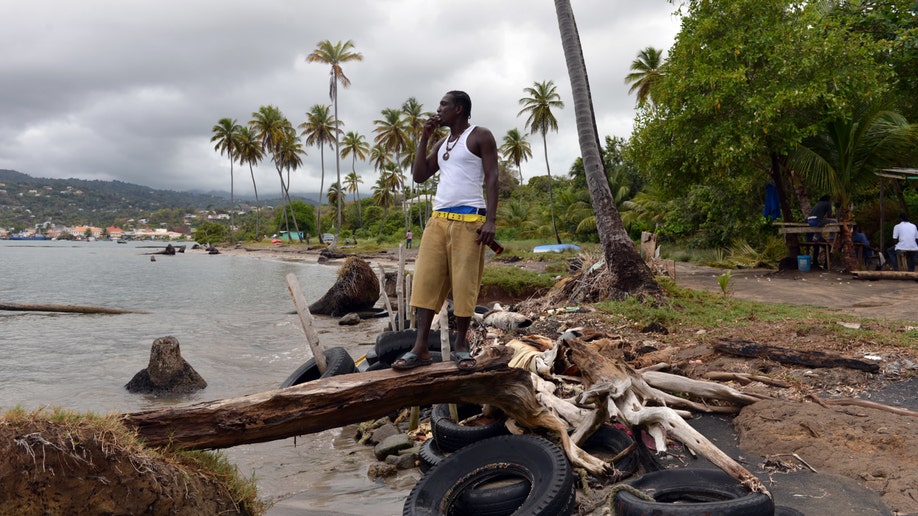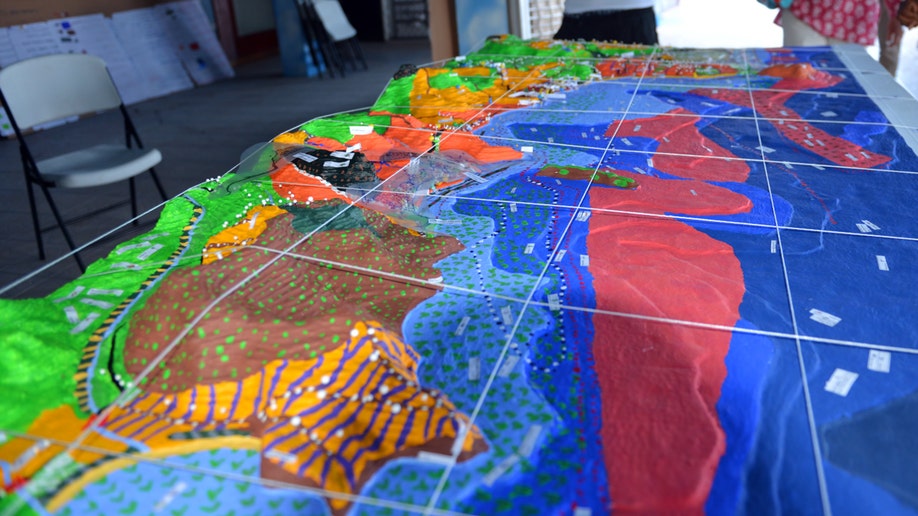Rising seas in southern Caribbean offer dark preview of future amid climate change
{{#rendered}} {{/rendered}}Rising sea levels are threatening tens of thousands of people living near the coastline in the Caribbean, especially in southern island of Grenada.
The old coastal road in the fishing village of Telescope sits under a couple of feet of murky saltwater, which regularly surges past a hastily-erected breakwater of truck tires and bundles of driftwood intended to hold back the Atlantic Ocean.
People here say they have been watching the sea eat away at their shoreline in recent decades, a result of destructive practices such as a practice known as sand mining and ferocious storm surges that researchers say have been made worse by climate change. Scientists and government officials worry that this swath of Grenada could preview what's to come for many other areas in the Caribbean.


